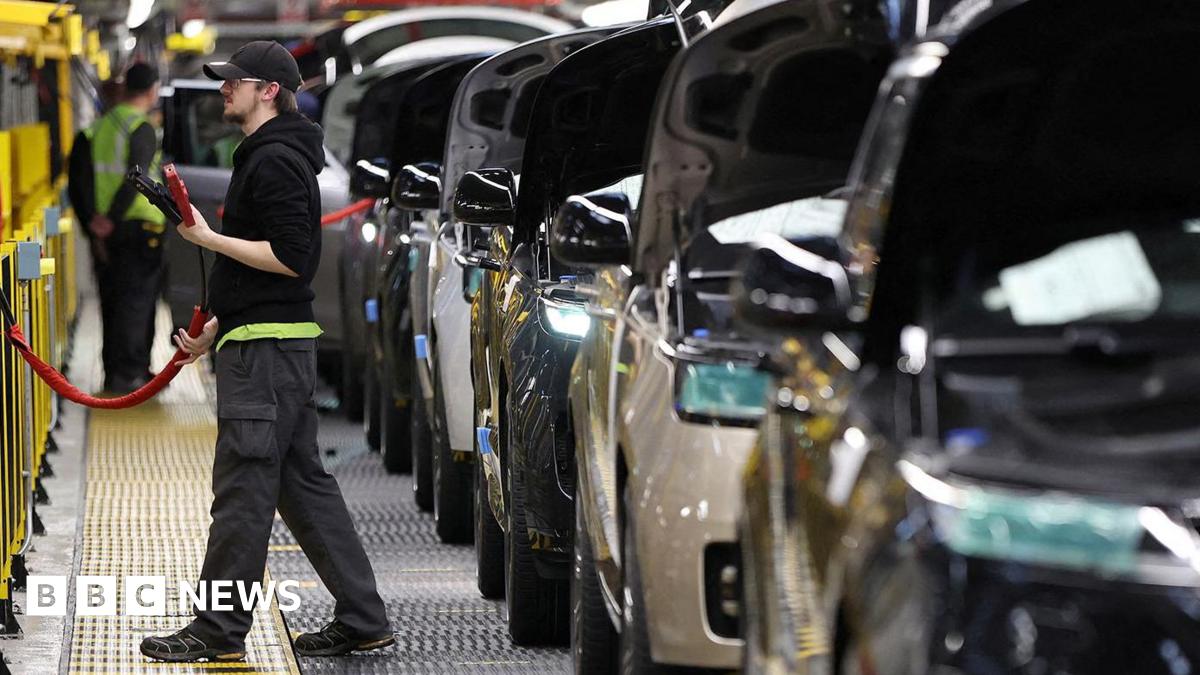JLR sits at the top of a pyramid of suppliers, many of whom are highly dependent on the carmaker because it is their main customer.
They include a large number of small and medium-sized firms, which do not have the resources to cope with an extended interruption to their business.
“Some of them will go bust. I would not be at all surprised to see bankruptcies,” says Andy Palmer, a one-time senior executive at Nissan and former boss of Aston Martin.
He believes suppliers will have begun cutting their headcount dramatically in order to keep costs down.
Mr Palmer says: “You hold back in the first week or so of a shutdown. You bear those losses.
“But then, you go into the second week, more information becomes available – then you cut hard. So layoffs are either already happening, or are being planned.”
A boss at one smaller JLR supplier, who preferred not to be named, confirmed his firm had already laid off 40 people, nearly half of its workforce.
Meanwhile, other companies are continuing to tell their employees to remain at home with the hours they are not working to be “banked”, to be offset against holidays or overtime at a later date.
There seems little expectation of a swift return to work.
One employee at a major supplier based in the West Midlands told the BBC they were not expecting to be back on the shop floor until 29 September. Hundreds of staff, they say, had been told to remain at home.
When automotive firms cut back, temporary workers brought in to cover busy periods are usually the first to go.
There is generally a reluctance to get rid of permanent staff, as they often have skills that are difficult to replace. But if cashflow dries up, they may have little choice.
Labour MP Liam Byrne, who chairs the Commons Business and Trade Committee, says this means government help is needed.
“What began in some online systems is now rippling through the supply chain, threatening a cashflow crunch that could turn a short-term shock into long-term harm”, he says.
“We cannot afford to see a cornerstone of our advanced manufacturing base weakened by events beyond its control”.
The trade union Unite has called for a furlough system to be set up to help automotive suppliers. This would involve the government subsidising workers’ pay packets while they are unable to do their jobs, taking the burden off their employers.
“Thousands of these workers in JLR’s supply chain now find their jobs are under an immediate threat because of the cyber attack,” says Unite general secretary, Sharon Graham.
“Ministers need to act fast and introduce a furlough scheme to ensure that vital jobs and skills are not lost while JLR and its supply chain get back on track.”
Business and Trade Minister Chris Bryant said: “We recognise the significant impact this incident has had on JLR and their suppliers, and I know this is a worrying time for those affected.
“I met with the chief executive of JLR yesterday to discuss the impact of the incident. We are also in daily contact with the company and our cyber experts about resolving this issue.”

